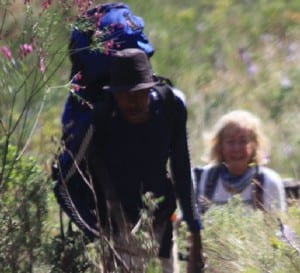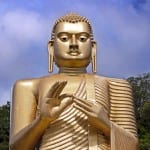 Of late years, the tourism industry has begun changed the way we talk about what we do. Increasingly, we are talking about the Visitor Economy rather than about tourism.
Of late years, the tourism industry has begun changed the way we talk about what we do. Increasingly, we are talking about the Visitor Economy rather than about tourism.
This term hasn’t gone public yet – I still describe my work as tourism to people outside the industry. Out of context, the phrase can sound a little cold. It’s been helpful in getting policy makers to understand the value of tourism to both economies and to social capital. But these important impacts can lack a human face.
That’s why we need both to use the phrasing and also tell the stories that back it up. These stories bring the idea of the visitor economy alive to the people politicians fear and policy makers serve: the wider public.
Bringing the Visitor Economy to Life
I saw that human face vividly on a recent trip to South Africa. Whilst there, I fulfilled a long-term aspiration to hike in the Drakensberg Mountains. Our group was supported by a guide Caiaphas, a deputy guide Jeffrey and a number of porters – all of whom live close to the Mweni Cultural Centre from where we began the hike.
As you trek over 4 nights, you chat to your guide and learn a little also about the other members of the team. Caiaphas left school with the expectation that he would work to support his parents and his family. Employment within his striking beautiful area was extremely limited (the area mostly supports subsistence farming). So he moved to Johannesburg where he spent 2 years searching for work. Both unemployment and underemployment are major issues for South Africa – being estimated by Statistics South Africa at 25% and 38% respectively.
Turning Local Lives Around
Caiaphas’ knowledge of the Drakensbergs is very rich and detailed, including the smugglers’ routes that enable marijuana to be smuggled from even poorer Lesotho into South Africa and the wider world. So to support his parents he used this amazing knowledge to become a smuggler.
He was caught and served 18 months in prison. When he emerged he took advantage of a government scheme to train tourist guides and found work with Drakensberg Hiker. This enabled him not only to live in his beloved valley, but to use his skills and knowledge in a more lucrative and legal way. He now has his own guiding business and is also branching out into cultural tourism – building facilities to allow tourists to experience traditional Zulu life in a direct way.
Beyond building cultural understanding, Caiaphas’ enterprise will build social capital, enable business skills to grow in the region and provide employment to porters that will supplement the earnings of their subsistence farms and enable them to improve their farms and allow their kids to be educated.
That’s really what the visitor economy means: more jobs (especially for young people and in rural areas), better opportunities, new skills and a brighter future – as well as great (and moving) visitor experiences.
So let’s keep telling the real story of the visitor economy – it’s a ‘win win win’ for our industry, our economy and our communities.
[icon name=”fighter-jet” class=””] Do you want to hear more from us?
Want to be kept up to date with the latest travel and tourism insights? Join Our Mailing List. Every 2 weeks, we send the latest practical insight for you to apply to your business and destination marketing.
[aio_button align=”none” animation=”none” color=”yellow” size=”small” icon=”none” text=”SIGN UP NOW” relationship=”dofollow” url=”https://ce141.infusionsoft.com/app/page/3b91e76f9295b4952bc564bd38f00064″]



